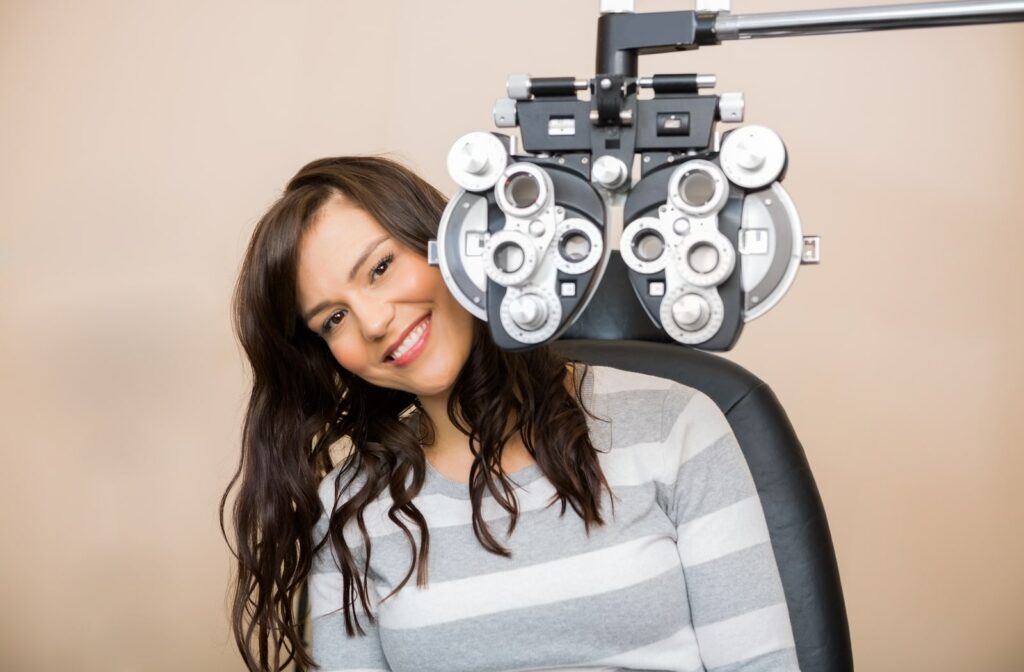All Categories
Featured
Table of Contents

Regular eye evaluations are essential for preserving good vision and identifying possible eye health and wellness issues early. The frequency of these exams can differ dramatically based on a person's age, way of living, and overall health and wellness. Recognizing the advised timetable for eye tests can aid guarantee that people of any ages receive appropriate care and monitoring for their eye wellness.
Infants and Toddlers (0-2 Years)
For infants and toddlers, eye exams are crucial for finding any type of potential vision issues beforehand. The American Academy of Ophthalmology recommends that a youngster's very first eye examination must happen at around 6 months of age. Throughout this initial browse through, the eye treatment professional will certainly assess the kid's aesthetic growth and look for any kind of evident eye problems.Following this very first examination, it is advised that youngsters have one more eye test at age three. This go to will concentrate on analyzing the child's overall visual feature, consisting of eye placement and the capacity to track objects. If no concerns are discovered, the next exam should be scheduled prior to the child starts college, commonly around age 5 or six.
School-Aged Children (6-18 Years)
Once youngsters reach school-age child, regular eye tests should be scheduled each to 2 years. Vision is crucial for learning and growth, and several schools perform vision screenings. Nonetheless, these screenings do not change a comprehensive eye exam by an eye treatment specialist.For kids associated with sporting activities or tasks calling for substantial visual emphasis, yearly eye examinations might be advisable. In addition, if a kid shows indications of vision issues-- such as trouble reading, scrunching up your eyes, or regular frustrations-- a check out to the eye doctor should be arranged immediately.
Youthful Grownups (19-39 Years)
Young person generally have less vision adjustments than older age teams, yet routine eye exams continue to be necessary. The basic recommendation is to set up an eye test every 2 years throughout this period. Nonetheless, individuals with certain threat elements-- such as a family members background of eye illness, diabetes, or those who use get in touch with lenses-- ought to think about yearly eye examinations.Additionally, those who spend significant time on electronic devices may experience digital eye stress. If signs such as dryness, tiredness, or blurred vision take place, it might be a good idea to see an eye treatment professional sooner.
Adults (40-64 Years)
Grownups aged 40 to 64 must schedule eye tests every one to 2 years. Eye tests can likewise aid identify other usual age-related conditions such as glaucoma, cataracts, and macular degeneration.If individuals in this age have danger aspects such as high blood pressure or diabetic issues, they might require more frequent assessments to monitor their eye health and wellness carefully.
Senior Citizens (65 Years and Older)
For elders, regular eye tests become also much more crucial. The American Optometric Association suggests that individuals aged 65 and older have an eye exam at the very least when a year. Older grownups go to a higher danger for different eye diseases, including cataracts, glaucoma, and age-related macular deterioration. Early detection and treatment of these conditions can prevent vision loss and boost the high quality of life.Verdict.
Understanding the suitable schedule for eye exams based on age is important for keeping ideal eye wellness throughout life. From babies to seniors, normal eye exams play an essential duty in detecting issues early and ensuring that vision remains sharp. By sticking to these standards and speaking with an eye treatment specialist, people can take aggressive steps towards protecting their vision and total health. Whether it's a kid's first browse through or an elderly's annual exam, focusing on eye care is an investment in lifelong well-being.Table of Contents
Latest Posts
Improve Your Home's Outside with Weathercraft's Siding Solutions
Published en
1 min read
Safeguard and Improve Your Home with Weathercraft's Siding Solutions
Published en
1 min read
Uncover Brake Repair & More: Full Repair Options from Montclare Auto Repair
Published en
1 min read
More
Latest Posts
Improve Your Home's Outside with Weathercraft's Siding Solutions
Published May 28, 25
1 min read
Safeguard and Improve Your Home with Weathercraft's Siding Solutions
Published May 27, 25
1 min read
Uncover Brake Repair & More: Full Repair Options from Montclare Auto Repair
Published May 27, 25
1 min read